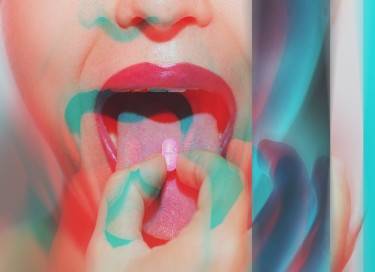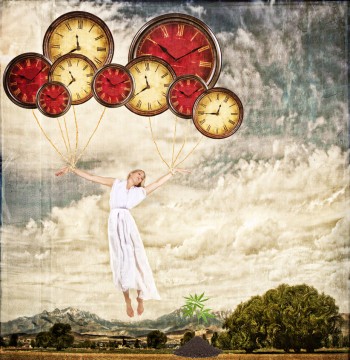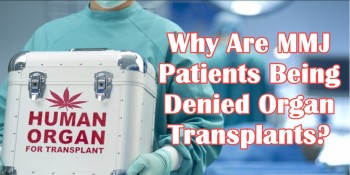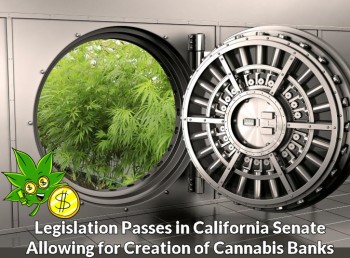
The time of psychedelics has come. There’s no denying that psychedelic drugs, especially magic mushrooms, are already mainstream.
This means that just like marijuana, it’s more easily accessible than ever despite the fact that it isn’t as widely legal as pot. But it can certainly get there in the near future.
It could get into the hands of underage kids, which is why it’s up to parents to educate children on the use of psychedelics. The risk for kids accidentally being exposed to psychedelics is also largely because more parents are microdosing mushrooms and other psychedelic drugs – after all, we need to heal ourselves too. Teenagers may also be experimenting with mushrooms in place of marijuana or alcohol. While mushrooms are safer choices, it’s still not
However, this also means we are ushering into a new era of parenting. It isn’t far off for mushrooms to be as common as wine soon, so how prepared are today’s parents to deal with it?
Just Say No: Not The Way To Go
Several decades ago, the DARE (Drug Abuse Resistance Education) Program launched the Just Say No campaign under Nancy Reagan. It was a simple education tactic, though one that is criticized to be far TOO simplistic in their approach towards drugs. The Just Say No campaign featured shady characters posing as drug dealers and users, basically moral failure, which meant to threaten kids by giving them the message that they could turn out to be losers if they used drugs, at all.
Needless to say, that tactic failed. Big time.
Millions of kids who were exposed to the campaign still ended up taking drugs.
Parents, don’t use the same approach. These days, you have successful people microdosing mushrooms and taking LSD. Many of them don’t have much dysfunction in their lives because psychedelics helps them cope, and even perform better at work. It’s considered normal – as normal as drinking alcohol – among adults. And there are many of us who can responsibly use psychedelics without any of the issues that the DARE program threatened us with. In addition, the Just Say No campaign did nothing else but spread misinformation and ignorance on drugs.
Kids who were exposed to Just Say No eventually realized that they were misled. As a result, they questioned everything and wanted to try it – without the proper guidance.
What parents need to do is provide children with key information and resources that they can use to make the right decisions when faced with the possibility of using psychedelics.
What To Tell Your Kids
Drugs is a blanket term to refer to a huge array of psychedelics, plant medicines, and hallucinogens. One of the biggest mistakes you can make is to generalize the effects of drugs.
That said, it’s also important to carefully reflect exactly what your perception and beliefs are surrounding psychedelics. Do you have any hard and fast rules, or are you more flexible? Are you open to your kid experimenting (safely) with psychedelics, or do you personally believe they should stay away from it?
If you think your child should stay away from psychedelics completely, that is your prerogative and it must be respected. Keep in mind though, that parents who bring up drug use in a way that’s similar to health problems have more success keeping their kids off drugs, than simply shaming them or threatening them about becoming a societal failure because of it.
On the other hand, if you are flexible and allowing your child to experiment albeit responsibly, here are some things to keep in mind:
-
Provide detailed information and context: Drugs will have different effects on people. Marijuana may make some alert while it can make others sleepy, psychedelics can cause hallucinogens, a spiritual experience, or sheer laughter, and ecstasy can be risky but beneficial when taken under the guidance of someone who’s more experienced.
These are just a fraction of a myriad of ways psychedelics and drugs can affect people after consumption. Altered mental states will vary from one person to another, and make it clear that taking too much can definitely increase any health and safety risk as well as the chances that the experience will be unpleasant. Educate them on the benefits of starting slow and taking low doses especially at first.
-
Pay special attention to children who may have congenital conditions or health problems: While psychedelics can certainly heal and help treat many conditions, these can be dangerous when consumed by a person who has existing health problems such as heart disease or other ailments. Teach your kids that sneaking out to experiment with psychedelics is not a wise choice at any age because of a condition they may have, while stressing the fact that drugs can interrupt their treatment and put them in harm’s way.
-
Be open and transparent: If you have tried psychedelics yourself, share your experience. Parents who are open to drugs tend to have more transparent relationships with their children regarding drug use because they don’t fear being open to you, since you are open with them as well. Share both the good and bad experiences that you felt, and if you aren’t opposed to it, tell them that you are willing to support healthy drug experimentation when they are OF AGE. There’s no use turning to horror stories and alarming, falsified reports; drugs can benefit your kids when they get older the way it did with you.
Conclusion
There’s a big possibility that kids right now will at some point be exposed to the opportunity of taking psychedelics. Parents should be prepared with a helpful, informative discussion that will help their children make the right decisions moving forward, learning from the mistakes caused by the Just Say No program. With these tips in mind, you can strengthen your bond with your child despite the mainstream presence of psychedelics.






